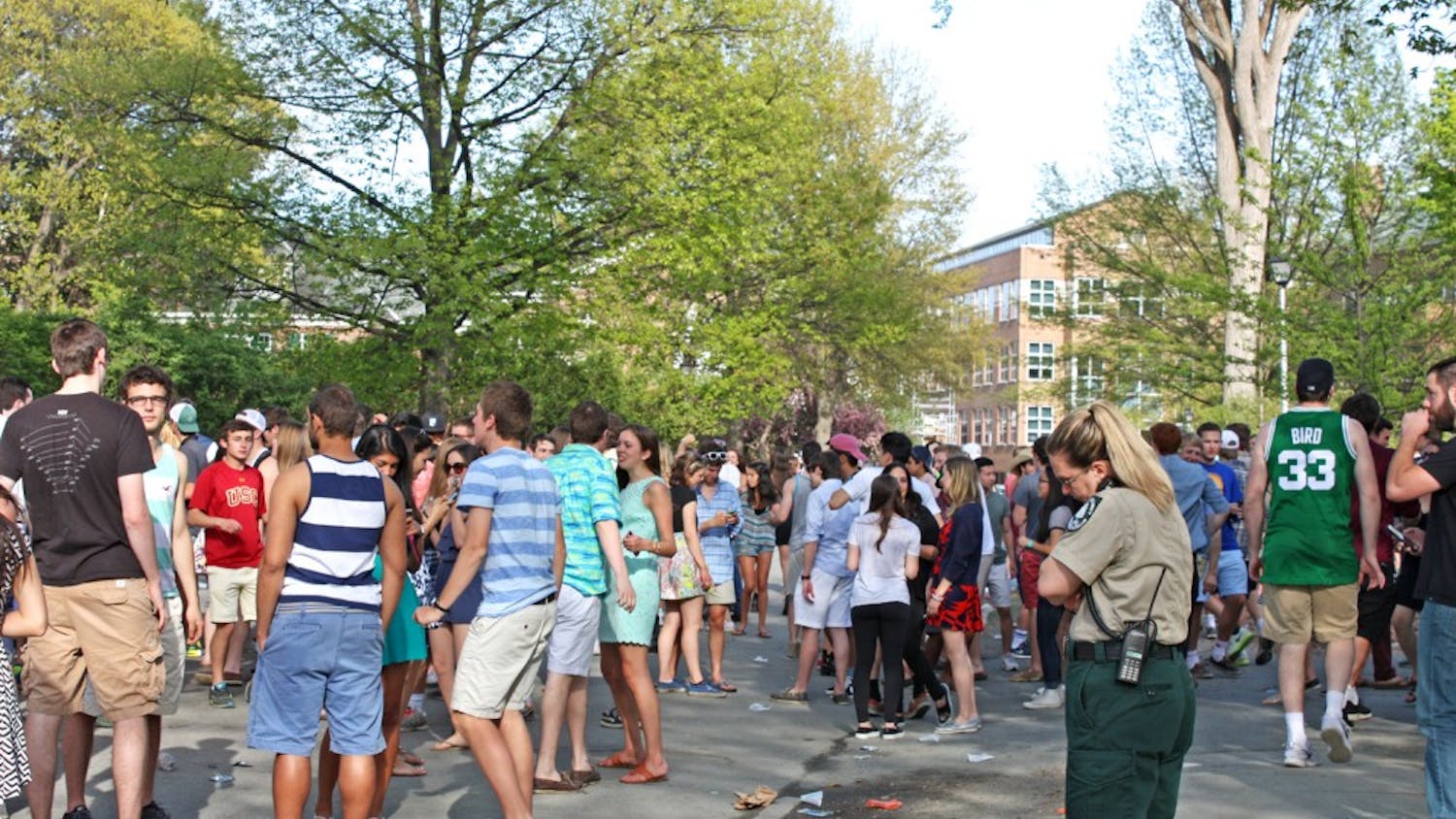When Susan Kuehl's sorority sisters found out she was a lesbian, they packed her bags and asked her to leave. When John Lee announced his homosexuality, fraternity brothers ransacked his room and left a sign on his bed saying "Faggot go home!"
But according to Shane Windmeyer, co-editor of "Out on Fraternity Row: Personal Accounts of Being Gay in a College Fraternity," and Associate Director for Fraternity/Sorority Life at San Diego State University Douglass Case, incidents such as these are rapidly abating.
"Society is becoming less tolerant of homophobic behavior," explained Windmeyer.
Case told The Dartmouth that radical changes in societal attitudes toward homosexuality have occurred within the last decade.
Despite such changes, however, according to some experts, obstacles still remain in the social paths of gay Greeks. In Case's recent study of Greek homosexuals, 70 percent reported homophobic attitudes within their houses.
"Men tend to use homophobia to prove their masculinity," Windmeyer explained.
According to Case, within the Greek system, the combination of age, the presumption of heterosexuality, and a tendency toward exclusiveness can often cause fraternities and sororities to espouse homophobic attitudes far more exaggerated than those of individual members.
Yet Dartmouth's Coed Fraternity and Sorority Council Adviser Cassie Barnhardt did not allude to such problems here at the College.
"I think that each individual person's experience is unique and there are going to be obstacles for any students in any organization," she said.
Indeed, Barnhardt said Greeks are constantly approaching her with questions about how to make fraternities and sororities more inclusive.
Whether or not Dartmouth is immune to Greek homophobia and heterosexism, the recent publication of both Windmeyer's anthology and Case's study suggest that coming out of the closet on fraternity row remains a topic of hot controversy.
Case conjectures that between five and 13 percent of the total membership of Greek houses are gay. Once in a house, many are swayed to stay in the closet based on the fear of rejection.
However, their chances of actually being rejected by friends in a Greek house have plummeted in recent years.
"The reality is that when gay fraternity men come out, far more often than not, the experience is one of accepting," Case said, adding that the rate of social rejection of newly-outed homosexuals by their fraternity brothers and sorority sisters is just as low as that of being spurned by their own families.
Homophobia is much more rampant during rush, when, without the benefit of knowing the rushees well, Greeks are more likely to judge homosexual potential members poorly due to the out-group-homogeneity effect.
And Peggy Reeves Sanday, author of "Gang Rape: Sex, Brotherhood and Privilege on Campus," pointed out the ironic tension between the sexual hazing rituals and heterosexist attitudes that co-exist in some houses can make pledge period uncomfortable for newly accepted gay brothers and sisters.
"The paradox is that in displaying hypermasculinity and hypersexuality they are engaging in homoerotic behavior proving to one another that they are macho," she said.
Yet both Case and Windmeyer emphasized the fact that the situation is improving each year.
"The idea of having a male date at a social function was out the question ten years ago," Case said of fraternity events, adding that the practice is now much more commonplace.
Windmeyer's book includes stories of a sorority lesbian whose sisters threw her a coming out party as well as of a fraternity homosexual whose brothers took him out a local gay bar to celebrate his new identity.
However, Windmeyer pointed out that even as students become more enlightened, pressure from alumni and volunteers who run national fraternity and sorority headquarters often perpetuates the expectation that gay Greeks must remain hidden.
In the face of such pressure, however, there is much that students and administrators can do to support fraternity brothers, sorority sisters, or non-affiliated friends whom they suspect may be gay.
"What students can do is kind of think about their every day language," Barnhardt said. Friends can promote an environment of acceptance both by avoiding homophobic comments and vocally expressing their status as allies to the gay community.
As Case pointed out, you may not know whether or not a friend is gay, and derogatory comments made to an audience assumed to be heterosexual can be devastating to closeted gays.
Windmeyer concurred. "Visibility is key," he said. "If you are straight, and you are comfortable, you need to make yourself visible."
And all three of the experts suggested the introduction of workshops and programs within the Greek system itself would be helpful in raising awareness of and actually addressing issues surrounding homosexuality.
Case added that the best way to help a homosexual friend who has recently come out is to openly display endorsement and support.
"If brotherhood means anything," he said, "it should mean being willing to accept somebody as they are."



